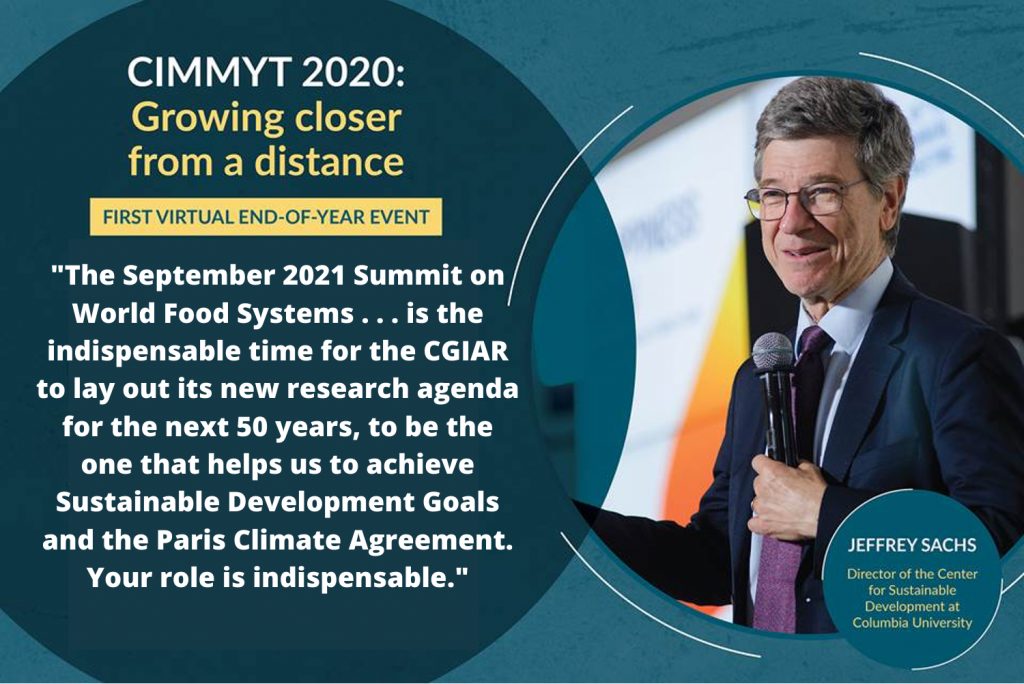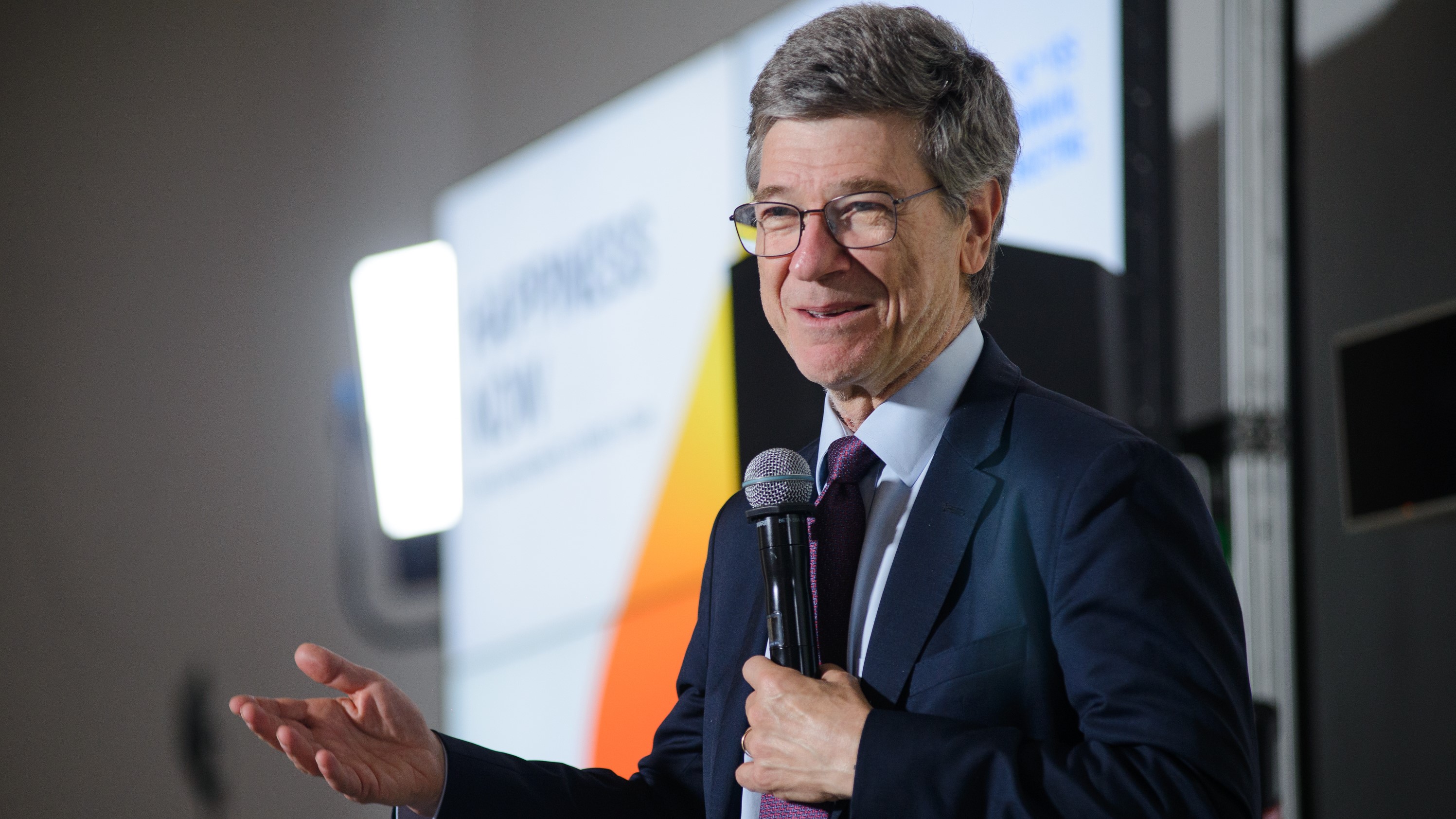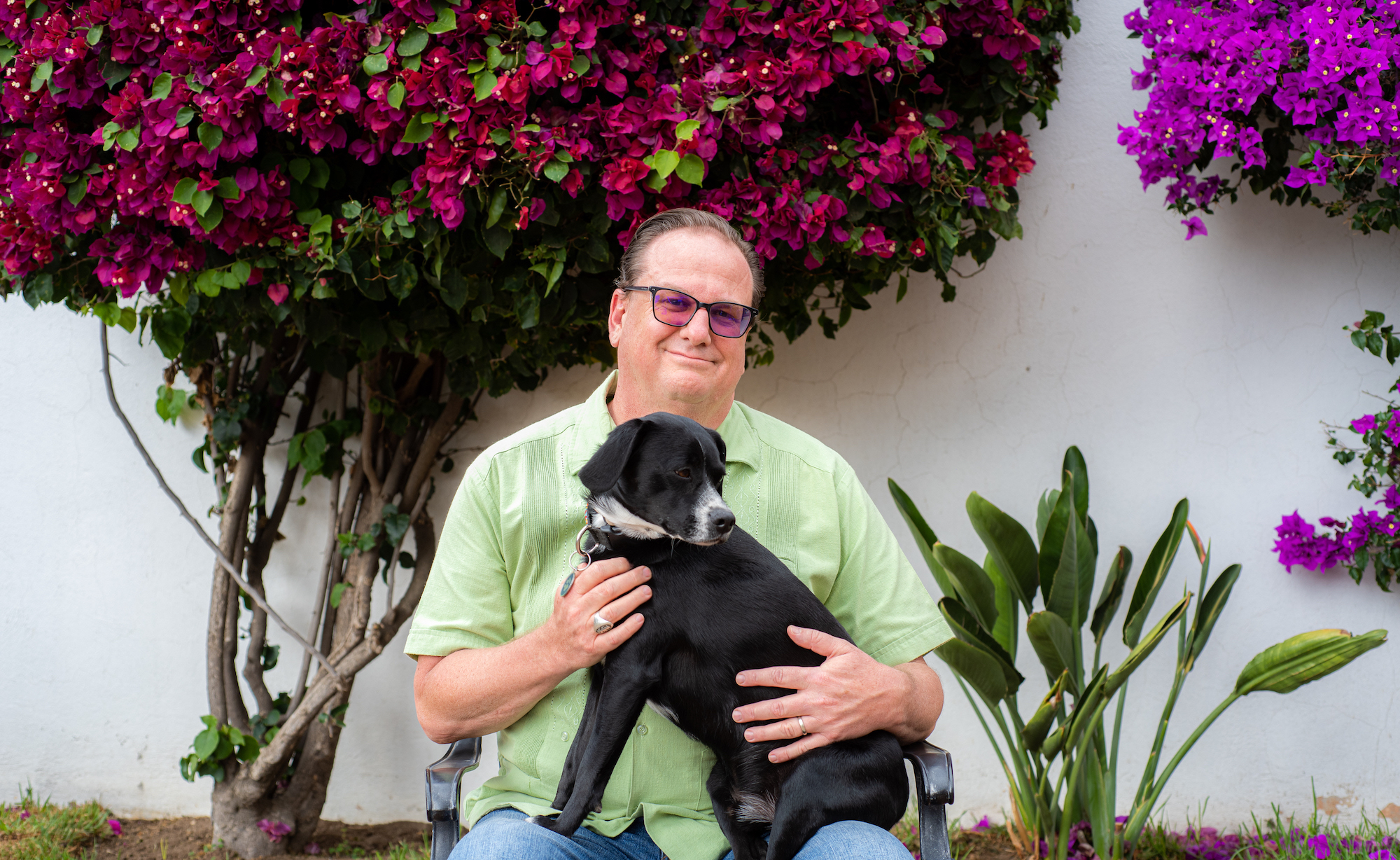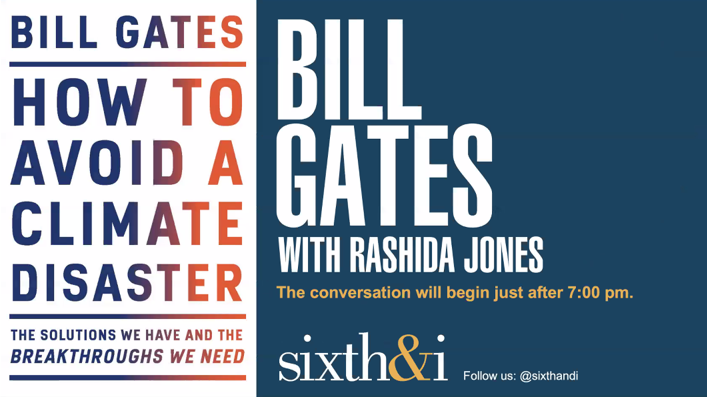Amidst the transition to One CGIAR and COVID-19 lockdowns, the world’s leading maize and wheat research organization’s community found the time to slow down and weigh the successes and bottlenecks of this complicated year. More than 400 people spread across the International Maize and Wheat Improvement Center’s (CIMMYT) 13 offices worldwide gathered for an all-staff virtual event to close 2020.
Aided by world-renowned economist Jeffrey Sachs’ vast experience in detangling global crises, sustainable development and poverty alleviation, staff reflected on the role they play within CGIAR and in helping CIMMYT increase its impact on nutrition security, poverty alleviation and a better world.
Connecting from his home in New York, Sachs urged CGIAR to see beyond the research priorities it set out to accomplish a half a century ago. With the 50th anniversary of CGIAR in 2021, Sachs encouraged CGIAR to think about the research priorities for the next 50 years. “We’re confronting a probably more systemic and even more complex set of challenges in food in 2021, than perhaps was the case in 1971,” he said.
“We need to expand the research agenda beyond the still-important focus on improved yields and varieties to consider the food system holistically. Our goal is a global food system that enables healthy diets, sustainable land use, resilience to environmental change, and good livelihoods for farm families.”
“Our goal is a global food system that enables healthy diets, sustainable land use, resilience to environmental change, and good livelihoods for farm families.”
Albeit not as famous as its colleague organizations the Food and Agriculture Organization of the UN (FAO) and the World Food Programme (WFP), CGIAR has been called “essential to feeding our future” by Bill Gates. Sachs echoed this sentiment and urged CGIAR to embrace its vital role in “achieving sustainable agriculture and healthy diets for all.”
The next 50 years
As CIMMYT moves into One CGIAR, it will capitalize on its over 50 years of experience, impact and expertise in genetic innovations, systems transformation and tools for resilient agri-food systems and fully embrace One CGIAR’s mission of delivering science and innovation that advance transformation of food, land and water systems in a climate crisis.
Throughout 2020, COVID-19 and global conflicts have put an almost impossible pressure on already overwhelmed agricultural production, smallholders’ livelihoods and global supply chains. As with any system, it requires resilience for its long-term sustainability. “Of course, CGIAR’s central goal has been to anticipate the future needs of food production and areas of new resilience such as flood resilience or drought,” said Sachs.
“I would add [for its future strategy to also consider] resilience to social disruptions and disruptions to global supply chains, as we experience with COVID-19 but also with geopolitical tensions,” he advised.

Keeping cereals in the equation
While diversification is important to human diets and the sustainability of agricultural production, we cannot afford to ignore the major cereals. Maize, rice and wheat provide a basic nutritional value, macro- and micronutrients that many people across the globe can afford and access.
Sachs asked CGIAR to look deeply at the question of poverty and food poverty, both in rural and urban areas. “CGIAR has more knowledge of how smallholders are living and how their lives are changing than any other research institution in the world. And I think your work can therefore give tremendous guidance on the overall fight against poverty and on the anticipation of increased urbanization in future years, as agriculture becomes more mechanized, and as smallholders or the children of today’s smallholders leave for urban areas in the coming generation.”
“CGIAR has more knowledge of how smallholders are living and how their lives are changing than any other research institution in the world. And I think your work can therefore give tremendous guidance on the overall fight against poverty.”
Sachs acknowledged the large and important task that CGIAR faces in its future. “All of this is incredibly difficult. […] I find the food system challenges to be the most complex of all of the sustainability challenges we face.”
He spoke of the task at hand with urgency and that there is no greater intellectual challenge than the transformation to sustainable agriculture: “The role of the CGIAR will be unique and indispensable in helping to guide us through those transformations. I think this is the indispensable time for the CGIAR to lay out its new research agenda for the next 50 years to be the one that helps us to achieve the Sustainable Development Goals and the Paris Climate Agreement.”


 Environmental health and biodiversity
Environmental health and biodiversity 
